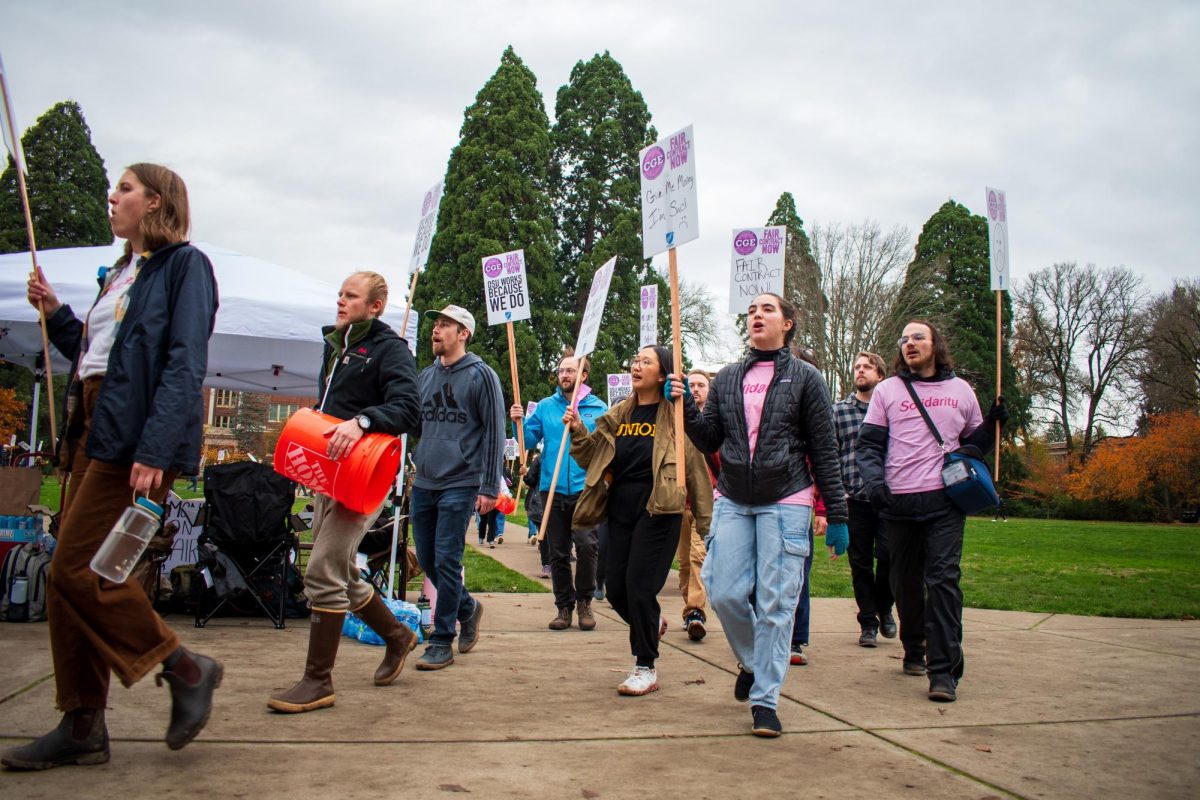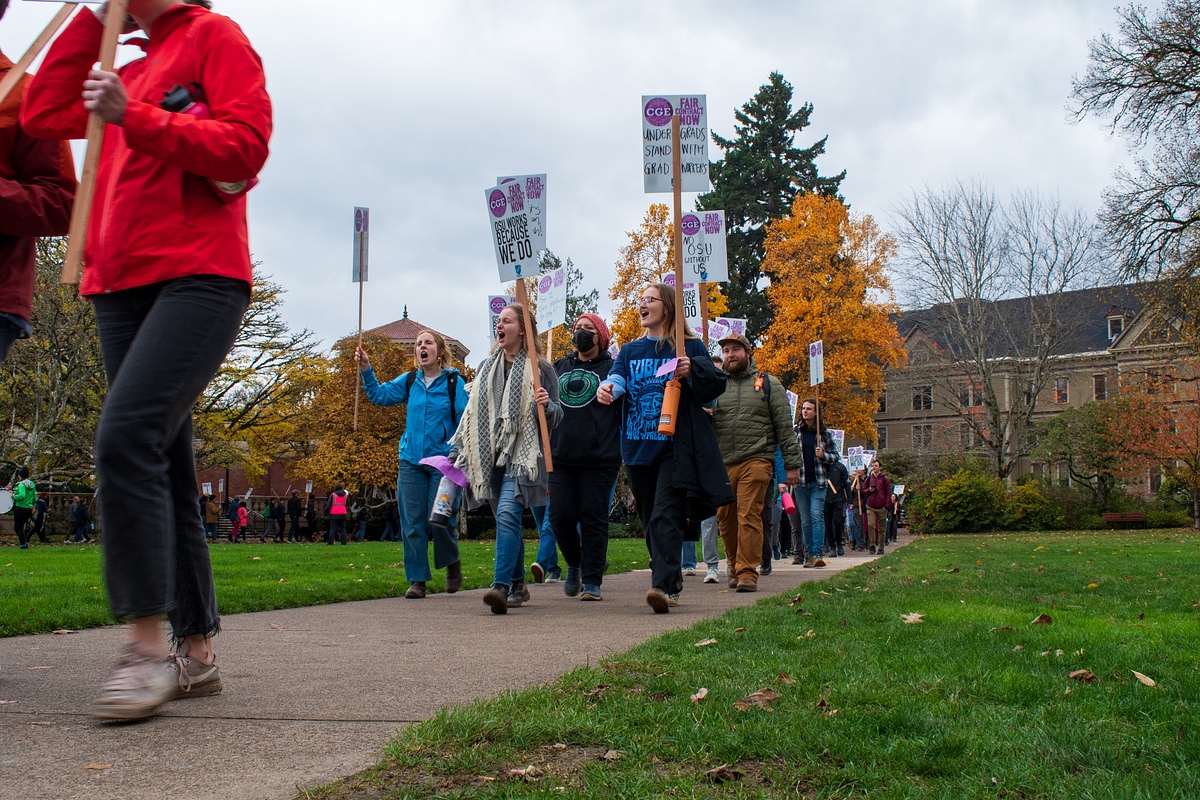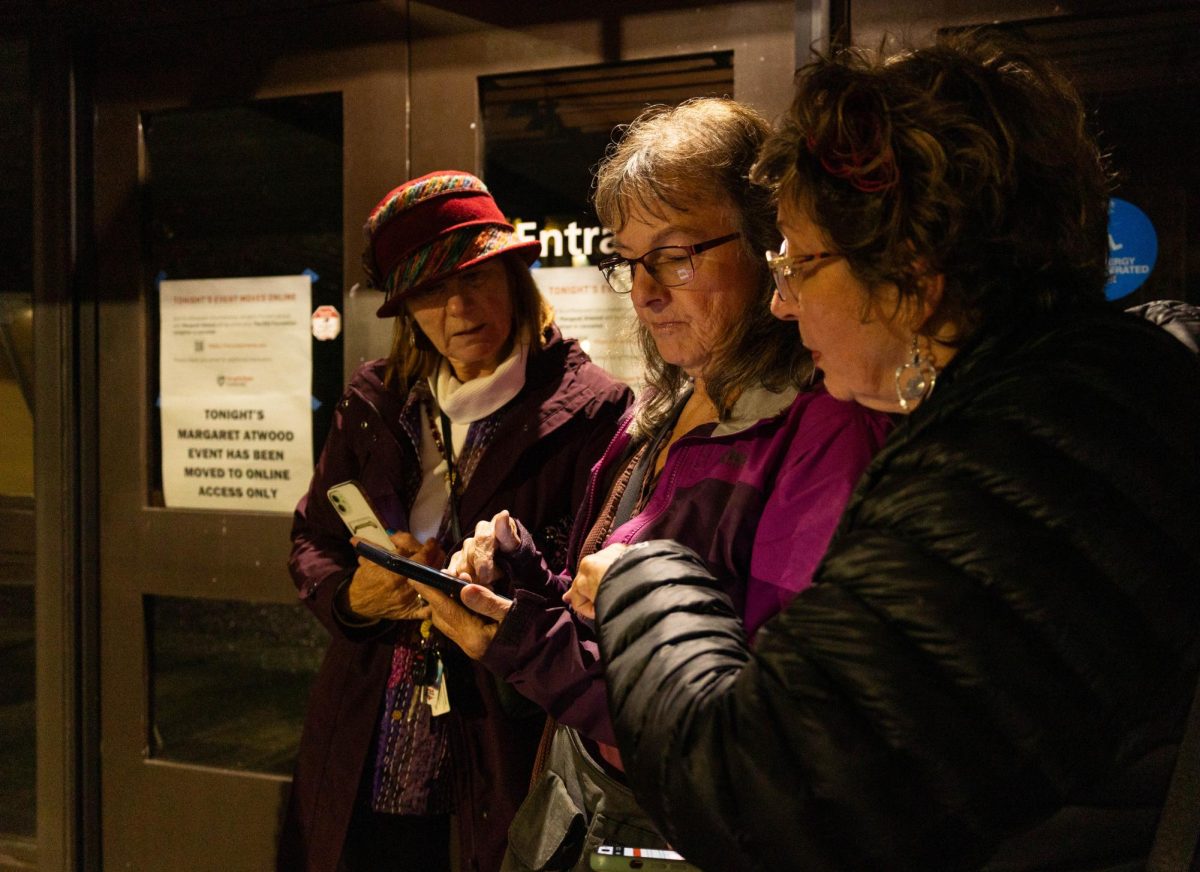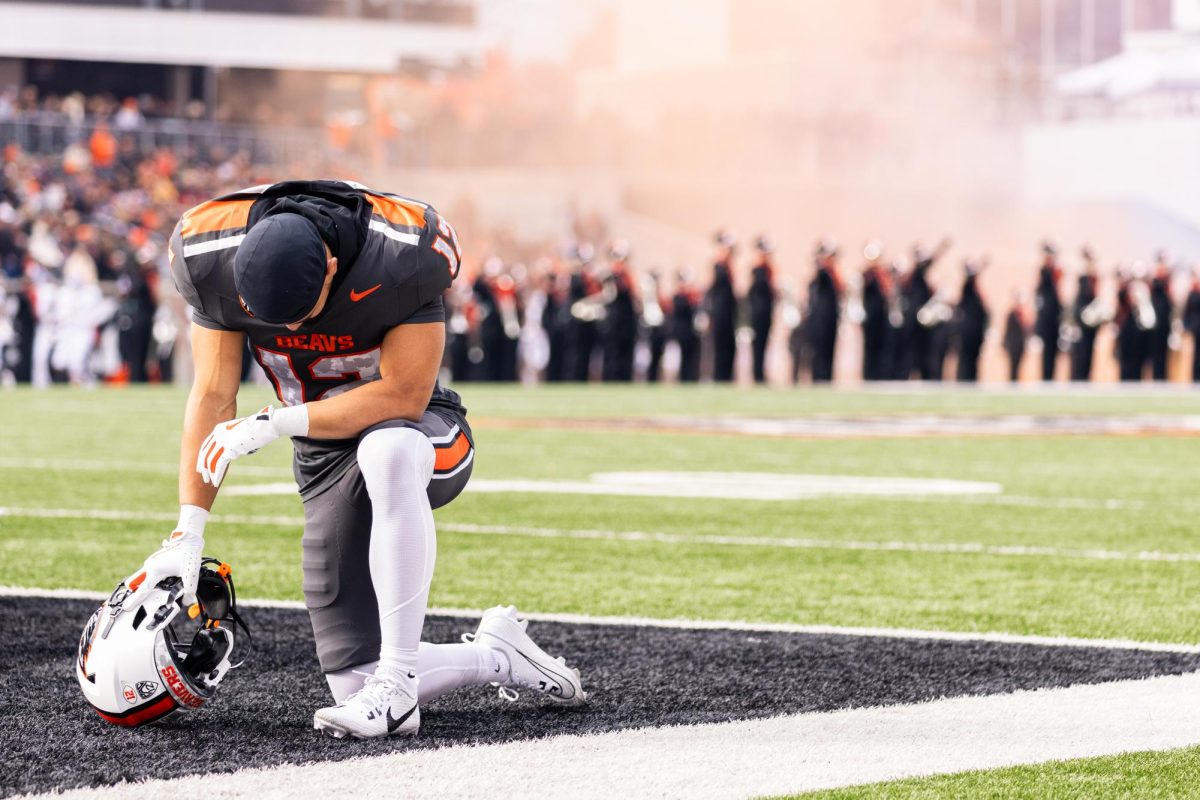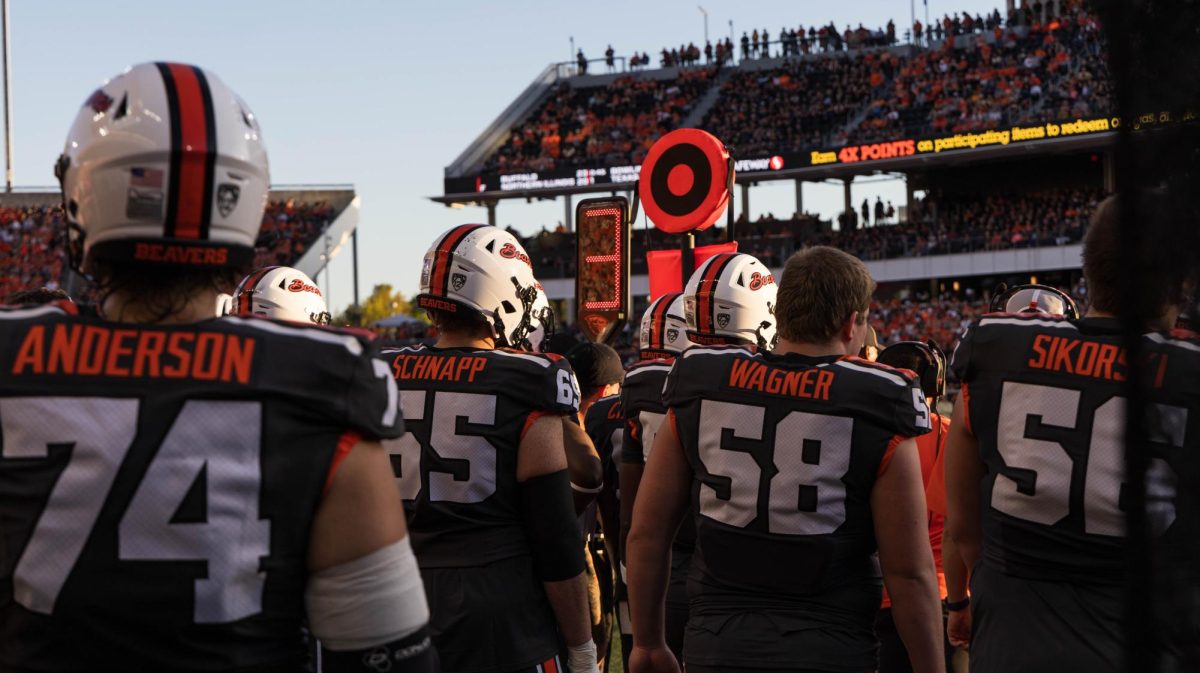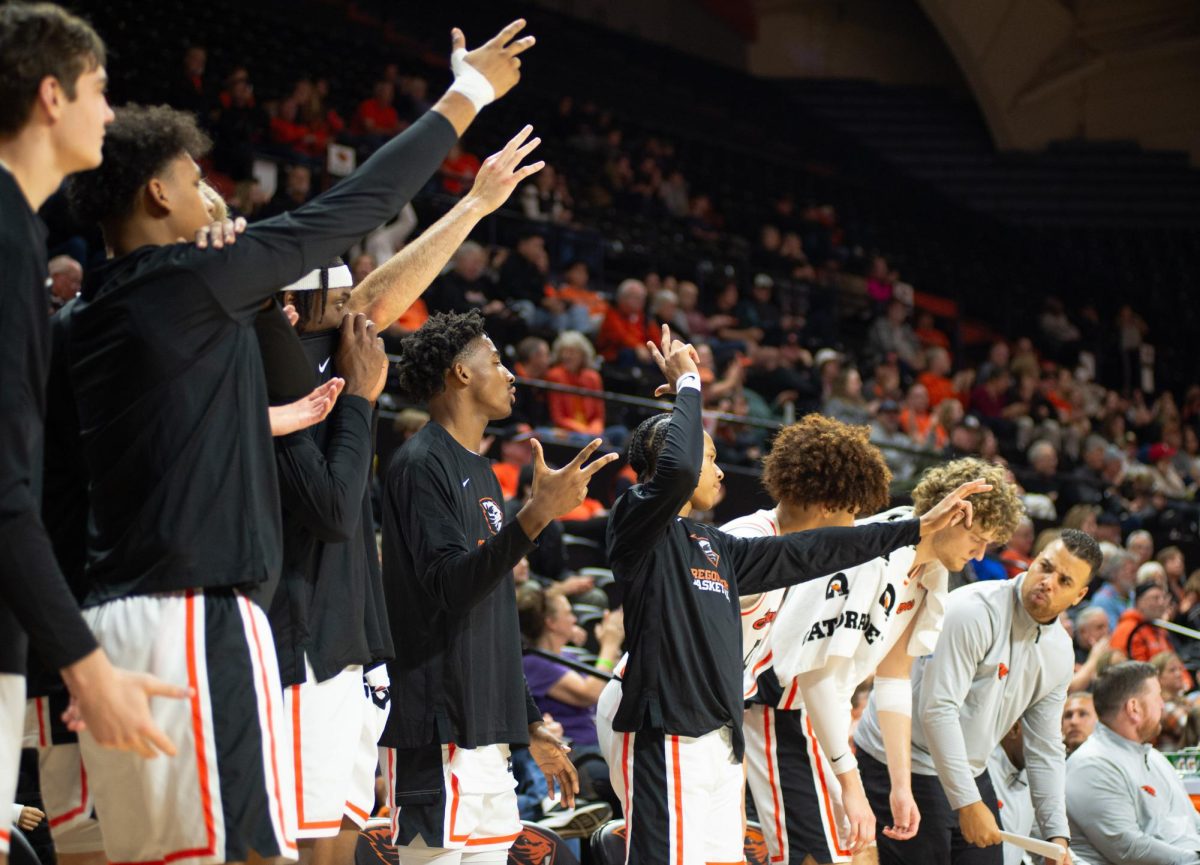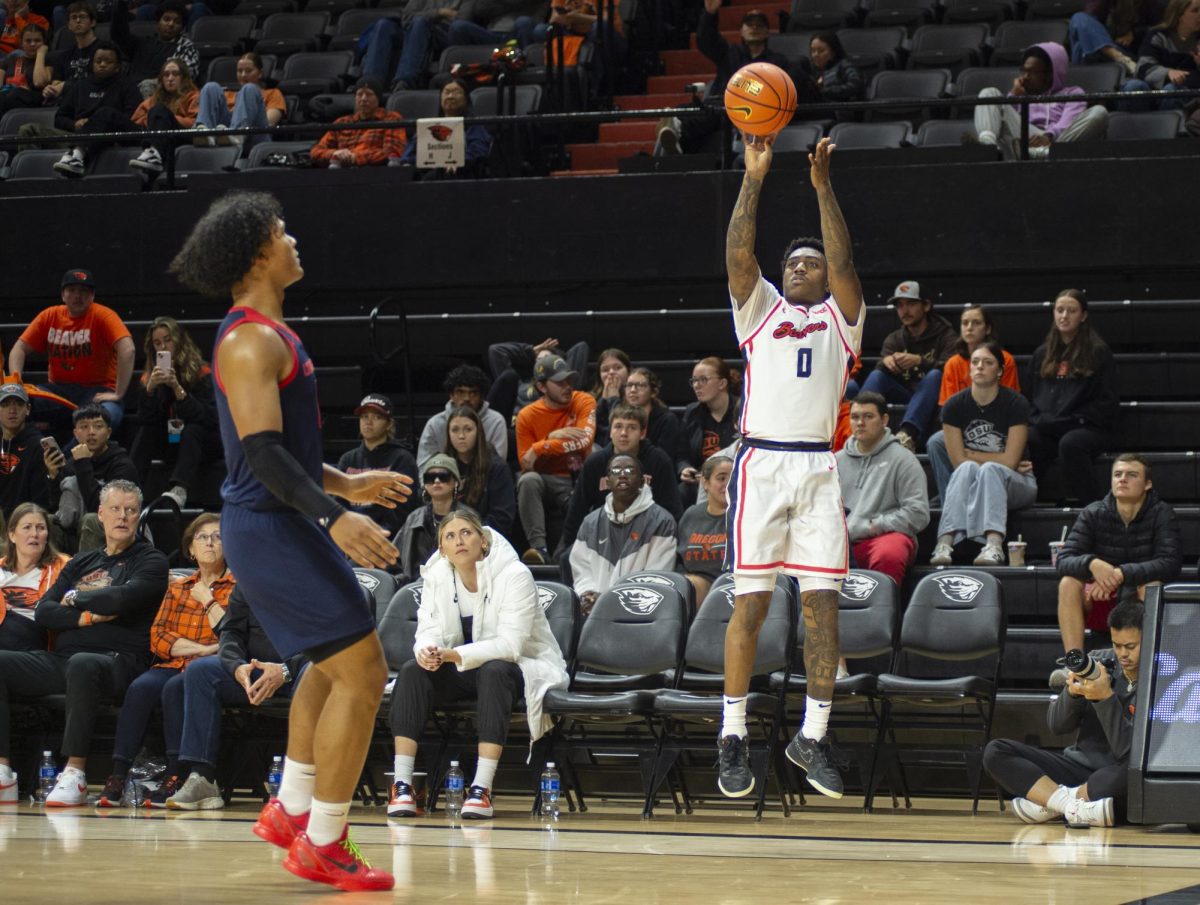Editor’s Note: The original posting of this story included a paragraph that was not independently verified apart from anonymous sources. The Barometer is committed to accuracy and transparency, so the paragraph was removed until further evidence confirms the claims.
As elections begin, current members of Oregon State University’s student government have emerged with concerns of a right-wing organization’s potential interference.
With five presidential tickets running for office beginning this week, some members of the Associated Students of OSU said they are particularly worried about the political organization during the start to election season.
The group, Campus Victory Project, is considered a political organization that aims to establish students in university government positions, according to their website.
CVP is part of Turning Point USA, whose mission is to build a “conservative grassroots activist network” in high schools and colleges, according to their website.
“Our leadership development team identifies leadership potential, addresses student educational and career goals, and provides resources and grants to assist students in developing leadership opportunities on campus,” the CVP website states.
According to a CVP brochure shared by an anonymous source, CVP’s “first and primary goal is to commandeer the top office of student body president at each of the most recognizable and influential American universities.”
One of the universities listed was OSU.

CVP has approached ASOSU candidates in the past, including current ASOSU President Carissa O’Donnell and Vice President Dakota Canzano, who turned down their offer to work together.
In fact, outside funding for campaigns by any organization or individual acting on the behalf of an organization is a violation of ASOSU election rules.
“Funding” includes offering money for campaigns, scholarships, free goods or lunches. It can also include helping run someone’s campaign.
According to the 2024 elections packet, a major offense is “accepting financial contributions by any organization or individual acting on behalf of an organization.”
“While we were contacted by a friend and fellow student affiliated with CVP when beginning to organize our campaign, we agreed early on that our platform and motivations did not align with CVP and chose to pursue a self-funded and self-run campaign in which we were our own campaign managers,” O’Donnell and Canzano said in a letter to the editor.
The two shared their financial records with the Barometer which also indicated they were never funded by CVP.
The sources of campaign funding must be from a candidate’s own funds or contributions by other individuals, according to Keri Simonet, ASOSU student government advisor.
Candidates are required to submit their own financial statements for their campaigns at a threshold of $300.
To Simonet’s knowledge, no ASOSU members have accepted funding from third party organizations.
Two ASOSU members, who asked for anonymity for their position’s sake, said their worries about CVP funding students goes beyond a potential violation of the rules.
“Even outside of the goals of CVP, I am concerned about having people who blatantly violate elections rules and lie to the voter base about their involvement and their ethical behavior when it comes to other important decisions ASOSU is involved in,” said an anonymous member of ASOSU.
According to a 2017 publication of the New Yorker, CVP-sponsored students are allegedly expected to follow TPUSA’s political agenda, which said once CVP is in control of student governments, TPUSA expects campus leaders to follow their political agenda, one of which means defunding progressive organizations within their campuses. Another movement, sources claimed to the New Yorker, was to implement “free speech” to eliminate barriers to hate speech.
According to the same anonymous source, it can be difficult to identify who is taking money and associating themselves with CVP because some don’t make it publicly known.
In O’Donnell and Canzano’s experience, the presence of third-party organizations in student government is most noticeable during election season.
“Students can be a vulnerable population, especially as it relates to financial stability and lack of additional time to run a campaign. For students, an offer of financial and organizational support is enticing as it frees barriers to entry often associated with campaigning for elected positions,” O’Donnell and Canzano said.
CVP was also contacted multiple times for an interview with no response, and students with whom they work are not publicly shared on their website.
The second anonymous source said their biggest concern is that students know what’s happening and understand who is attempting to “get behind” candidates.
As far as what to look for, another anonymous source encourages students to be observant and cautious with endorsements and publicity for candidates coming from sources outside of OSU, particularly non-OSU students.
“I think the bigger thing for me is, I value above anything else, openness and honesty with the students that put you into office. And if the students that put you into office don’t know the true story behind who’s backing you, then they’re being lied to,” said the second anonymous ASOSU member.
The ASOSU ballot is open for voting now, ending on March 1. To vote or view the voter’s guide, visit here.







